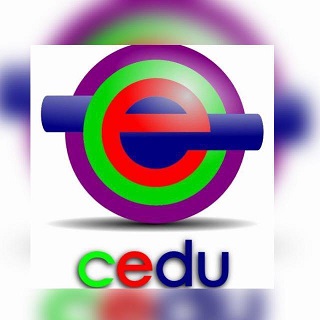THE CONSTRUCTION OF SCIENTIFIC KNOWLEDGE THROUGH STORYTELLING: CHILD PROTAGONISM IN STUDENTS OF THE ELEMENTARY SCHOOL
Keywords:
Construction of Knowledge, Elementary School, Teaching-learning processAbstract
The construction of knowledge in a contextualized way with the childrens' reality and with a multiple society is a big challenge for Brazilian Education. The objective of this research is to understand the development of children's protagonism in the construction of scientific knowledge through pedagogical practice exploring storytelling in a public school. The research of qualitative character, developed in the methodology of Case Study, is based on the accomplishment and observation of the pedagogical practices in a class of 3º year of Elementary School, in the state of Rio Grande do Sul, Brazil. The discussions take place in the context of the research developed by the research group Convivência e Tecnologia Digital na Contemporaneidade - COTEDIC UNILASALLE/CNPq. Empirical data are records of student activities and teacher notes. Thus, it reflects on the role of children in the construction of scientific knowledge through the development of hypotheses, experiences and cognitive action, and in storytelling for the contextualization of knowledge and the development of metaphors. From this research, we try to bring the student closer to scientific practice, refuting the idea that knowledge is ready, immutable and should only be memorized. Children's protagonism develops from pedagogical practices in which students have a voice; their knowledge legitimized, autonomy, cognitive action, authorship and critical sense are contemplated for the construction of new knowledge.
Downloads
References
BACKES, L. Espaço de Convivência Digital Virtual: A cultura emergente no processo de formação do educador. 2011. Tese (Doutorado em Educação). Universidade do vale do Rio dos Sinos- UNISINOS, São Leopoldo, Rio Grande do Sul, 2011. Cotutela em Science de l’Education, Université Lumière Lyon 2.
BACKES, L. As manifestações da autoria na formação do educador em espaços digitais virtuais. Educação, Ciência e Cultura, v.17, n.2, p.71-85, 2012.
BACKES, L; MANTOVANI, A.M. Educação On-Line na Cibercultura: Desafios de literaturalizar a Ciência em E-book. Informática na Educação: teoria e prática, v.20, n.4, p.95-113, 2017.
BACKES, L.; MANTOVANI, A. M.; BARCHINSKI, K. C. Educação Superior em espaços híbridos: a presença e a copresença no processo de cooperação. Conjecturas: Filos. Educ, Caxias do Sul, v.22, n.3, p.458-481, 2017.
BACKES, L.; CHITOLINA, R.; SCIASCIA, C. Recontextualização das Ciências por meio da Contação de Histórias:O Processo de Aprendizagem. PSIQUE, v.15, n.1, p.128-143, 2019.
BRASIL. Base Nacional Comum Curricular: educação é a base. (Versão dezembro 2017). Brasília: MEC, 2017.
FELICETTI, V. L. Um estudo sobre o problema da MATOFOBIA como agente influenciador nos altos índices de reprovação na 1º série do Ensino Médio. 2007. Dissertação (Mestrado em Educação). - Pontifícia Universidade Católica do Rio Grande do Sul, Porto Alegre, Rio Grande do Sul. 2007.
FREIRE, P. Pedagogia da Esperança: um reencontro com a Pedagogia do Oprimido. 2.ed. Rio de Janeiro: Paz e Terra, 1992.
LAKOFF, G.; JOHNSON, M. Los mitos del objetivismo y el subjetivismo. In: LAKOFF, G.; JOHNSON, M (Orgs.) Metáforas de la vida cotidiana. Madrid: Ediciones Catedra, 1986.
LIBÂNEO, J.C. Democratização da escola pública: pedagogia crítico-social dos conteúdos. 27.ed. São Paulo: Loyola, 2012.
MALUF, M. As Mil e Uma Histórias de Manuela. Belo Horizonte: Autêntica Editora, 2013.
MATURANA, H.; VARELA, F. De máquinas e seres vivos. Autopoiese: organização dos vivos. 3.ed. Porto Alegre: Artes Médicas, 1997.
MATURANA, H.; VARELA, F. A árvore do conhecimento: as bases biológicas da compreensão humana. São Paulo: Palas Athena, 2002.
MATURANA, H. et al. A realização da vida. Science Daily, 2005.
PALMA, H. A Ciencia y metáforas: Los viejos ruidos ya no sirven para hablar. Cuardernos de Neuropsicologia, v.9, n.1, p.134-146, 2015.
SANTOS, B.S. Um discurso sobre as ciências. São Paulo: Cortez, 2004.
YIN, R.K. Estudo de caso: planejamento e métodos. 3ed. Porto Alegre: Bookman, 2005.
Published
How to Cite
Issue
Section
License
Copyright
The submission of originals to Cenas Educacionais (Educational Scenes - CEDU) implies the transfer, by the authors, of the publication rights. The copyright for the manuscripts published in this journal is the author(s), with CEDU rights over the first publication. Authors(s) may only use the same results in other publications by explicitly indicating CEDU as the means of the original publication.
Creative Commons License
Except where otherwise specified, the terms of a Creative Commons Attribution-ShareAlike 4.0 International License license apply to the material published in this journal, which allows unrestricted use, distribution and reproduction in any medium provided the original publication is correctly cited.






 This work is licensed with a License
This work is licensed with a License 